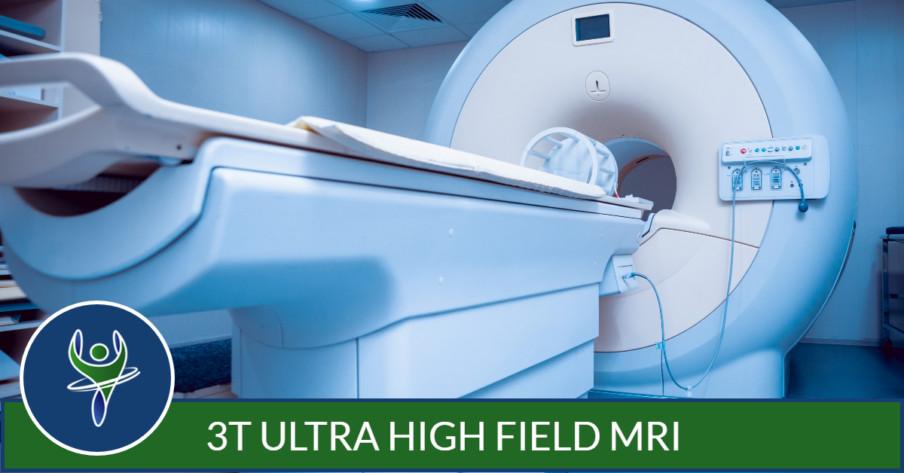When researching MRI magnets, signal strength plays a big role in creating the highest quality MRI exam for your medical provider. A 3.0T Ultra-High Field MRI delivers twice the field strength of a traditional 1.5T MRI scanner, providing greater detail in both structure and function. Three Tesla, or 3.0T, MRI is currently the gold standard in many specialized areas of medical imaging, including oncologic, neurological, orthopedic and urological practices.
Beginning in 2013, Capitol Imaging Services (CIS) installed our first 3T MRI system. Since then, it has grown to eight ultra-high field scanners serving the Gulf South region. Providing this quality of MRI imaging aligns with our commitment to offering the latest diagnostic technology to medical providers and the general public when needed.
When would I get a 3T MRI?
3.0T MRI is often used to evaluate patients with a number of neurological conditions, including brain laceration or skull fracture, brain or spinal tumor, stroke, multiple sclerosis or epilepsy. Key 3.0T applications specific to orthopedic imaging show improved sensitivity in the evaluation of targeted injuries to small joints such as wrists, hands and feet, as well as improved non-arthrographic joint imaging specific to shoulders and hips.
At CIS, 3.0T MRI incorporates special imaging protocols and Computer Aided Detection (CAD) software for all prostate exams performed in the great New Orleans market. If a man has an elevated Prostate-Specific Antigen (PSA) level and/or a positive Digital Rectal Exam, a 3.0T MRI may be the next step before a biopsy. Alternatively, a prostate 3.0T may be appropriate after eight weeks or more following a negative TransRectal Ultrasound (TRUS) guided biopsy.
Health care professionals also use MRI scans to diagnose a variety of conditions, from torn ligaments to tumors. MRI is very useful for examining the cervical, thoracic, and lumbar spine. MRI is often recommended as an important tool before a person undergoes a surgical procedure. Meaning, you have a higher likelihood of getting surgery with your condition.
Is a 3T MRI Always Better ?
What Will I Experience?
MRI exams are painless. However, some patients find it challenging to remain still. Others may feel closed-in (claustrophobia) or anxious while in a conventional closed MRI scanner. The scanner can be noisy. Nervous or anxious patients may be offered a mild sedative if available in the facility.
A patient may also ask their medical provider to prescribe a mild sedative to take before the exam. If a mild sedative is taken, the patient will need to have someone drive them to our center and take them home once the exam is done.
It is normal for the area of your body being imaged to feel slightly warm. It is important that you remain perfectly still while the images are being recorded, which is typically only a few seconds to a few minutes at a time. You will know when images are being recorded because you will hear tapping or thumping sounds when the coils that generate the radiofrequency pulses are activated. You will be able to relax between imaging sequences, but will be asked to maintain your position as much as possible.
You will usually be alone in the exam room during the MRI procedure. However, the technologist will be able to see, hear and speak with you at all times using a two-way intercom. In some cases, if a caregiver meets all the MRI safety requirements to sit in the MRI room for comfort reasons, CIS will allow patients this level of comfort.
You will be offered earplugs or a headset to reduce the noise of the MRI, which produces loud thumping and humming noises during imaging. MRI scanners are air-conditioned and well-lit. Some of our scanners have music you can listen to during the test.
If you have an exam that requires an injection of intravenous contrast material, it is normal to feel coolness and a flushing sensation for a minute or two following the injection. The intravenous needle may cause you some discomfort when it is inserted and once it is removed, you may experience some bruising. There is also a very small chance of irritation of your skin at the site of the IV tube insertion. It is always important to let the MRI technologist know if you have a history of any issues with needle insertions.
The length of time for an MRI exam will vary. Typically, most MRI scans will last 30 to 60 minutes.



